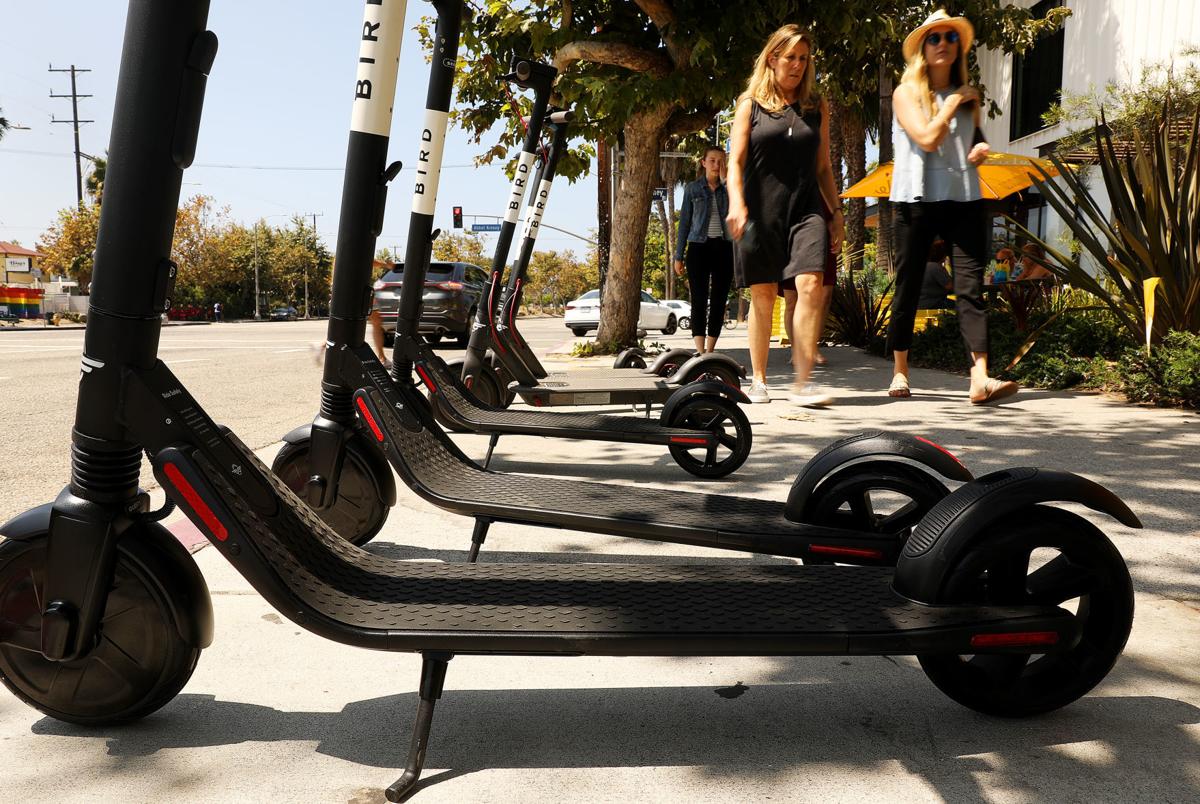As many as 1,500 dockless electric scooters could be operating on city streets this summer if the Tucson City Council green lights a pilot program Tuesday.
The complicated six-month pilot program, the product of discussions between city staffers and companies such as Bird and Lime, would allow for operation if the companies agree to a set of conditions that include restricting where the controversial devices can be discarded once the user is done with them in an attempt to keep them from blocking business entrances and piling up in city parks.
Councilman Steve Kozachik, who was part of a Council majority that rejected a different staff proposal in January, said he still isn’t convinced that e-scooters are good for Tucson.
“We’re inviting up to 1,500 e-scooters into the most densely populated part of the city, including them in the mix of pedestrians, the streetcar, buses and cars, on narrow commercial streets, and inviting them to clutter sidewalks that are already narrow and active. It’s a recipe for accidents, enforcement obligations and just more headaches that we simply don’t need,” he said.
With his ward covering Fourth Avenue, downtown Tucson and the University of Arizona campus, Kozachik says that attempts to use geofencing — a GPS-backed technology that would create restricted areas for e-scooters — is fundamentally flawed as it doesn’t prevent the devices from being used or left in those specific areas. Instead, it would only prevent riders from ending their sessions in those restricted areas, keeping the meter running until the scooter is back within approved boundaries.
Councilman Paul Durham is cautiously optimistic that the new proposal will give the scooters a chance.
“E-scooters present an opportunity to cut greenhouse gas emissions and decrease congestion. I support (the city’s transportation department’s) pilot program because it allows us to conduct a six-month, controlled experiment to determine if e-scooters are right for Tucson.”
A complicating factor in the Council’s decision on Tuesday will be the recent action by e-scooter company Lime to end operations inside Tempe’s city limits.
In a letter to city leaders, Lime said that Tempe’s regulations were simply too onerous to continue to operate.
Among their concerns was the city’s “unprecedented” insurance requirements and a $1 a day fee per scooter. The Tucson pilot program comes with its own insurance requirements and a per ride fee of 20 cents that must be paid by the company to the City of Tucson.
In January, the city of Glendale sent a cease-and-desist letter to another e-scooter company — Bird — demanding they remove all of their e-scooters.





